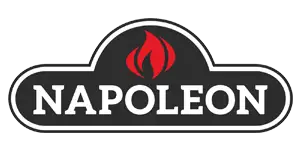
November 01, 2024
When it comes to maintaining comfort in large Toronto homes, proper heat pump sizing is essential. Choosing the right size heat pump ensures efficient heating and cooling while preventing unnecessary energy costs. However, many homeowners make critical mistakes during this process, leading to inefficiencies and discomfort. Here’s how to avoid those pitfalls.Heat Pump Sizing for Large Toronto Homes: Avoiding Common Mistakes
1. Underestimating Heat Load Requirements
One of the most common mistakes is underestimating the heat load required for a large home. Each space within your home can have different heating and cooling needs based on factors like square footage, insulation quality, and window types. It’s essential to conduct a thorough heat load calculation, which considers these variables to determine the right capacity for your heat pump. This will ensure your system can adequately manage temperature fluctuations throughout the year.
2. Ignoring Ductwork Quality
Another significant factor in heat pump performance is the condition of your existing ductwork. Poorly insulated or damaged ducts can lead to significant energy losses, affecting the efficiency of your heat pump. Before installation, have your ductwork inspected and upgraded if necessary. Proper sealing and insulation can dramatically improve your system's efficiency and lifespan.
3. Not Considering Zoning Needs
Large homes often have multiple zones, each with varying heating and cooling requirements. Failing to consider zoning can result in uncomfortable temperature variations and increased energy costs. Installing a multi-zone heat pump system allows you to maintain different temperatures in various areas of your home, ensuring comfort where it’s needed most.
4. Choosing the Right Type of Heat Pump
Not all heat pumps are created equal. For large Toronto homes, there are three main types to consider: air-source, ground-source, and water-source heat pumps.
- Air-Source Heat Pumps: These are the most common type and are typically more affordable to install. They work by transferring heat between your home and the outside air. Air-source systems are ideal for homes with moderate heating and cooling needs and generally work well in milder climates, though newer models are designed to operate efficiently in colder temperatures.
- Ground-Source Heat Pumps (Geothermal): Geothermal systems are highly efficient and can be an excellent choice if you have the space for installation. They utilize stable underground temperatures, making them ideal for climates with extreme seasonal temperature variations. While the upfront cost is higher, these systems are known for their long lifespan and substantial energy savings over time.
- Water-Source Heat Pumps: These systems are less common but work well for homes near a water source, like a lake or pond. Water-source heat pumps use the thermal properties of water to regulate indoor temperatures, offering efficiency similar to ground-source systems but with a potentially smaller installation footprint.
Each type has unique advantages and is suited to specific situations. Consulting with a professional can help you determine which system best fits your home, budget, and Toronto's climate conditions.
5. Overlooking Maintenance Needs
After installation, many homeowners forget about the importance of regular maintenance. A well-maintained heat pump operates more efficiently and lasts longer. Schedule annual inspections and tune-ups with a qualified technician to keep your system in optimal condition.
The professional and highly skilled team from Maple Air is here to help with all your heat pump sizing needs. We offer expert consultations to ensure your heat pump is properly sized, installed, and maintained for your large Toronto home. Don’t make the mistake of compromising your comfort—reach out to us today for a consultation!














